Whether it’s retro-fitting doors on chillers, putting in energy efficient lighting, installing heat reclaim systems, or even just brushing up on basic housekeeping, these days most convenience stores are attempting to curb their energy usage in one way or another.
However, one store in Surrey is endeavouring to bring all of these technologies and disciplines together under one roof - slashing bills, protecting the environment and getting ahead of the legislative game in the process.
It’s an area that the Southern Co-operative takes seriously. Says head of retail business development Steve Tremlett: “The Southern Co-operative is committed to safeguarding the environment in which we all live and work, and that’s what sets us apart from the competition.”
The extent of its green credentials certainly can’t be matched by your average Tesco. From its sustainably-sourced larch wood clad exterior to its intelligent bake off ovens, every millimetre of the Southern Co-operative’s new Chobham store has been designed with energy saving in mind.
With chillers constituting the single biggest drain on a convenience store’s energy usage, all cabinets have been fitted with smart glass doors which slash consumption by 50%.
The hinge-opening doors also ensure that the aisles are kept at a comfortable temperature for shoppers, as well as displaying informative and entertaining messaging which brings the energy savings to life. Customers in the chilled meats aisle, for example, can read that ‘by using chiller doors this store will reduce its annual carbon emissions by 18.6 tonnes. This is equivalent to planting 47 trees’.
In a truly cutting edge move, the chillers are also run using the natural refrigerant CO2, which is almost 4,000 times more environmentally friendly than the HFCs and GWP refrigerants traditionally used in supermarket and convenience store fridges and freezers. These more harmful refrigerants are currently being reviewed by the government which is seeking to reduce their use. However, as a natural refrigerant (meaning that it already exists naturally on the planet) CO2 would be unaffected by any new rules or regulations, placing the store ahead of the legislative curve.
All chiller lights are LED, as is all of the store’s overhead lighting, a fact which the Southern Co-operative believes will save at least 75% of conventional lighting energy costs. This saving is again explained to shoppers via the use of eye-catching and informative ceiling tiles. Shoppers who care to crane their necks skywards, for example, will learn that ‘by using energy efficient lighting and better energy controls this store will reduce its annual carbon emissions by 14 tonnes. This is equivalent to switching off 430,594 bulbs for one hour’. And just as a true community store should, the signage also makes for a far more interesting and engaging shopping experience for the store’s adult and child customers alike.
Large glass doors at the front of the store make the most of natural light, while the store operates entirely on energy generated by renewable sources including hydro-electric and wind power from Co-operative-owned wind farms.
The timber-framed building, which, incidentally, will be entirely recyclable once it reaches the end of its life, is also insulated in excess of normal Building Regulation requirements, meaning that heat loss is kept to a minimum in the winter and the store is kept comfortably cool in the summer so the chillers don’t have to work so hard.
A heat recovery system also takes waste heat generated by the refrigerator plant while cooling the chillers and freezers, and converts it into heating and hot water for the store’s bake-off and staff areas, instead of a traditional gas or electric system. It needs only 25% of the energy the old technologies would consume.
And, believe it or not, the store’s energy-saving mission doesn’t end there. “Even though this store is using so much less energy than a conventional c-store, there are still savings to be made,” says Steve Tremlett.
A clever energy management panel housed in the back office controls when the store’s lighting, heating, non-perishable refrigerated display cabinets, and even bake off ovens come on and off - all of which can be managed remotely.
In-store lighting, for example, comes on in three separate phases as the store prepares for opening, as opposed to all at once in other stores.
“This ensures that energy is only used when needed, removes the risk of human error and people forgetting to switch things off,” Tremlett adds. This alone is expected to save an additional 20 tonnes of CO2.
Intelligent energy-efficient ovens in the bake-off area automatically switch themselves off once they sense that products are ready, saving even more energy and ensuring that products are cooked to perfection and that nothing is wasted.
Tremlett estimates that the store’s total carbon reduction is equivalent to driving a car around the earth over eight times, or taking a bus to the Moon and back.
He is hopeful that the store will function as a useful test bed for new technologies, allowing the group to make informed judgements on future schemes, ideas and consultations.
“The bottom line, however, is that it’s better for the environment, and better for business,” he adds. •




















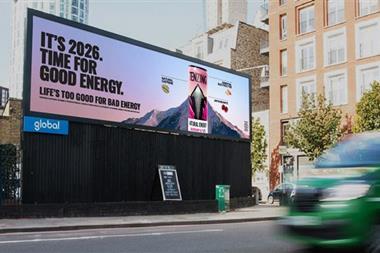



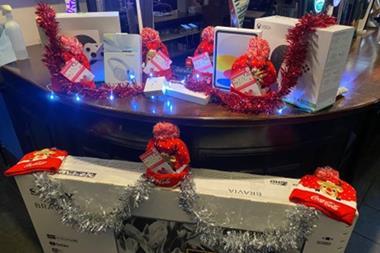
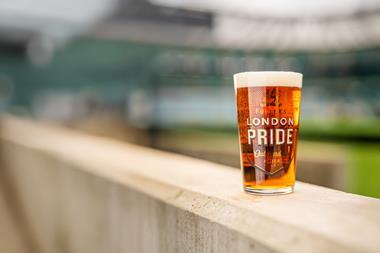
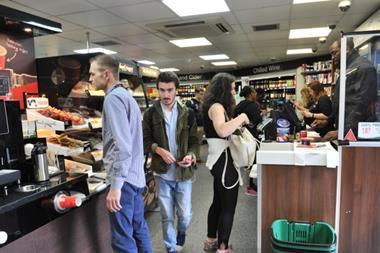
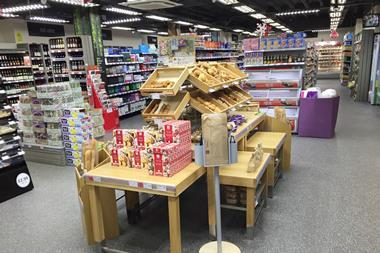
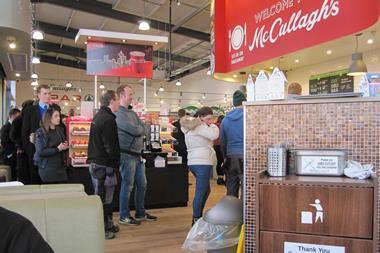
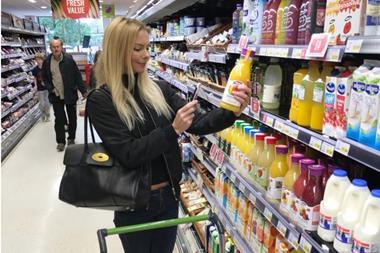
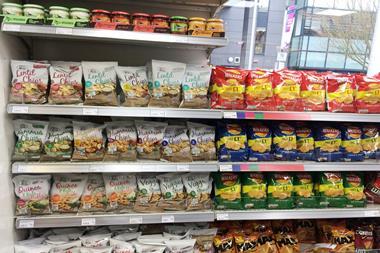
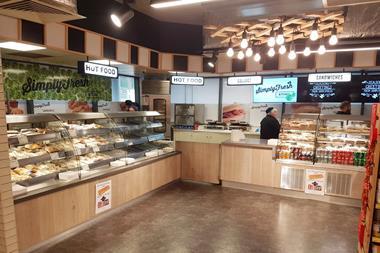
No comments yet